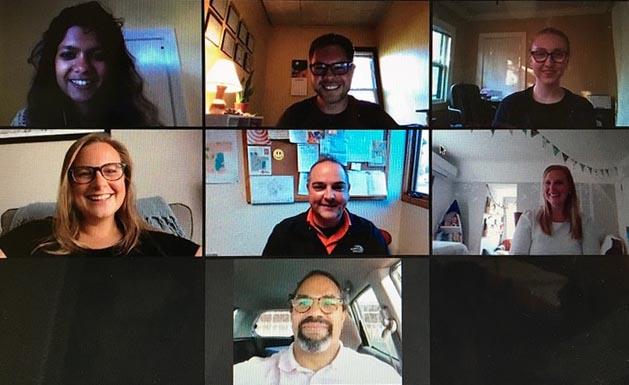A team of University of Minnesota graduate students and Resilient Communities Project (RCP) Fellows has been chosen as a finalist for this year’s MetroLab Student Cup. The Student Cup is intended to recognize exceptional student civic research projects, and create pathways for careers and partnerships in the civic research and innovation domain. The competition is sponsored by the MetroLab Network, an international collaborative of cities, counties, and universities focused on data- and technology-oriented civic research and innovation, and is being held in conjunction with the network’s Annual Summit this fall.
The RCP Fellows team of graduate students Cate Bruns (Liberal Arts), Gunnar Carlson (Public Affairs), Kendra Klenz (Design), Kyle Franta (Design), and Vipasha Bansal (Liberal Arts) submitted their work on a project with the City of Little Canada to facilitate equitable community engagement around master planning for the city’s Pioneer Park. The project, conducted in collaboration with Little Canada’s Parks & Recreation Manager, Bryce Shearen, and Director of Community Development and Planning, Corrin Wendell.
The RCP Fellows team is one of 12 finalists, from among nearly 50 project submissions, selected to compete for the Student Cup. Finalists will participate in a live pitch on November 12 to a panel of judges representing local government, civic organizations, and academia. Four finalists will be selected to receive $1000 awards and to advance to the final round on November 17. The final round winner will be featured as the MetroLab Network “Innovation of the Month,” in partnership with GovTech Magazine.
The RCP Fellows Program partners University of Minnesota graduate and professional students with local government agencies in Minnesota to provide research and technical assistance. Through the program, interdisciplinary teams of students collaborate directly with city and county staff on a high-priority project that serves to advance community sustainability, livability, and resilience.
